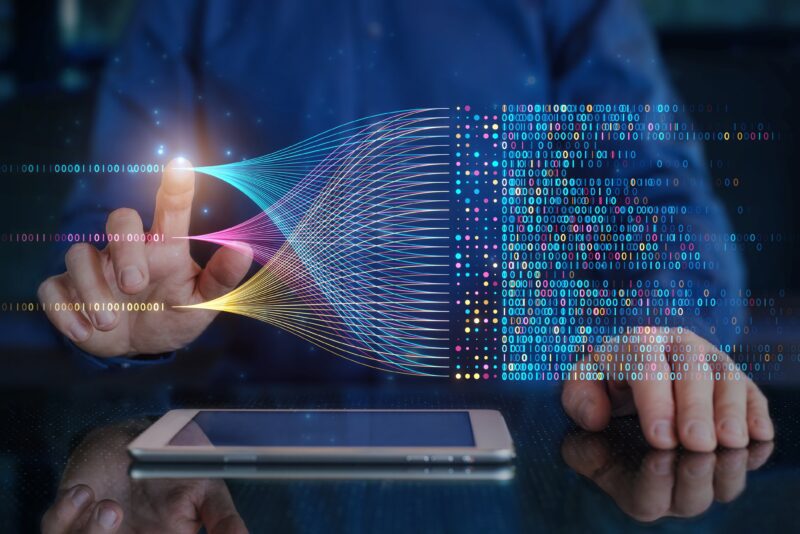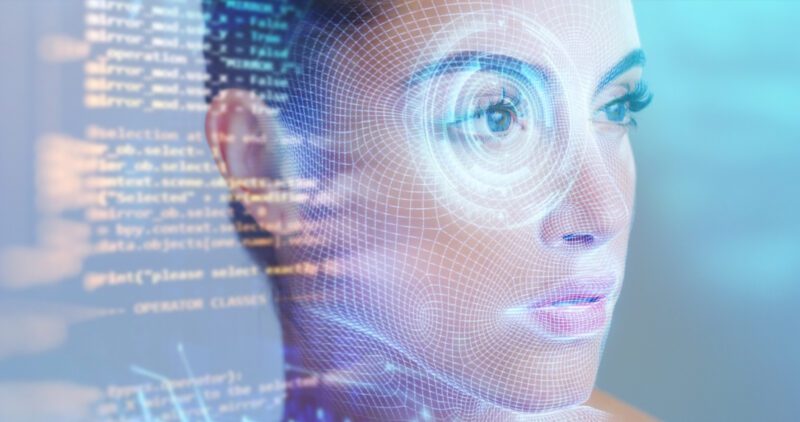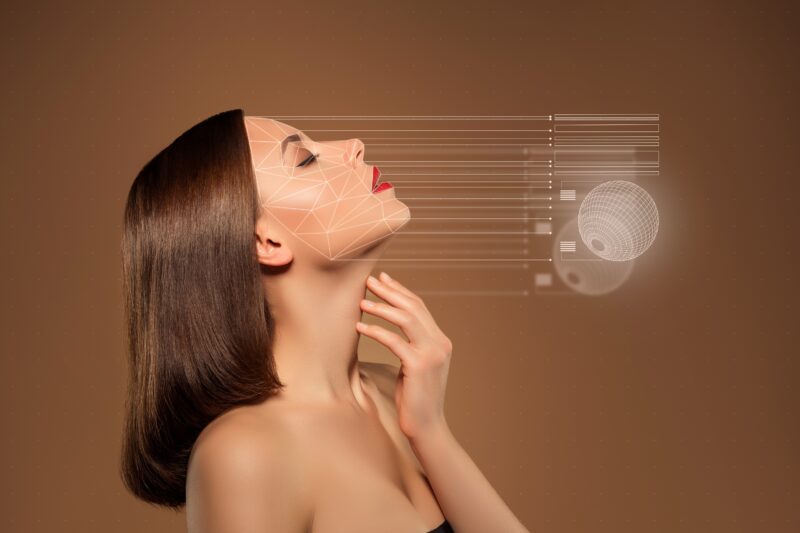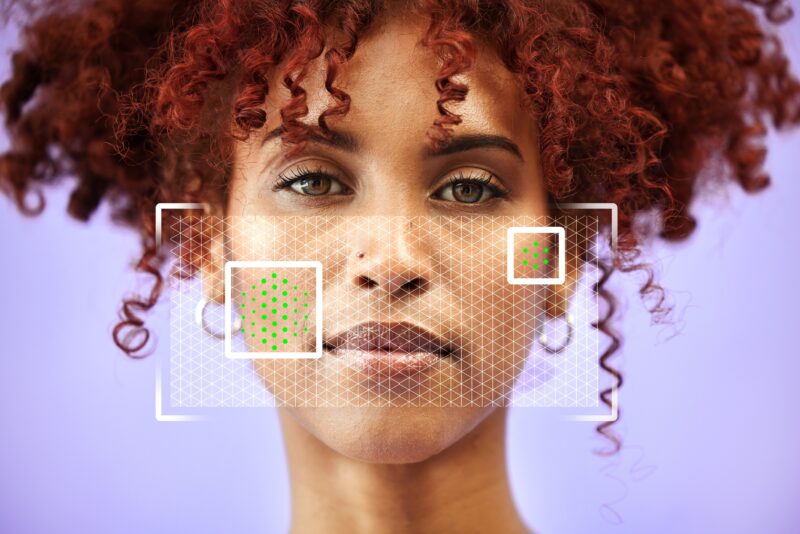The personal care industry is undergoing an exciting transformation, driven by advances in artificial intelligence (AI). Forecasted to grow from US $3.97 billion in 2024 to $8.1 billion in 2028, AI in the beauty and cosmetics market is offering new opportunities for ingredient discovery, formulation optimisation, and personalised product development [1]. Not only that, but AI has the potential to meet customer demands for safer, more sustainable, and better-performing products [2].
While the benefits of AI are evident, this shift also raises important ethical and legal concerns, from data privacy to intellectual property. In this blog, we’ll explore how AI is revolutionising personal care and the challenges that come with its growing influence.
Decoding the Definition of AI
Consumers often associate AI with smart products that offer connectivity, such as toothbrushes or hair removal devices [3][4]. However, AI is really about using machine learning and data analytics to process vast amounts of data for smarter, faster results.
As an example, SILAB, an engineer of natural active ingredients, recently conducted a study comparing non-invasive ‘optical biopsies’ of the skin with histological sections of the same area. The objective was to validate a new method for superficial dermis thickness quantification [5]. The use of optical biopsies as a quick tool in dermo-cosmetics could significantly improve the understanding of skin disorders while supporting efficacy tests of natural active ingredients targeting the dermal structure. While this study generated a large amount of data, AI could assist in its processing, improving accuracy and speed, and ultimately making it easier to assess the effects of cosmetic or therapeutic interventions.

It’s also important to clarify the distinction between AI as a tool for data analysis and the notion of AI as a fully autonomous intelligence capable of independent thought. In the personal care industry, AI typically functions as a collaborative tool—enhancing human capabilities, not replacing them. Expert formulators and scientists are still the final decision-makers, ensuring that the AI-driven inputs align with the product’s intended function and safety standards.
Revolutionising Product Development
By analysing vast datasets of chemicals, biological interactions, and consumer preferences, AI can predict the efficacy, safety and compatibility of various compounds. Mintel’s Beaut-AI trend predictions suggest that AI will, therefore, play a critical role in the discovery of innovative cosmetic ingredients, while also contributing to the creative process and forecasting of emerging beauty trends [6].
This Mintel report inspired Cornelius’ submission for the Laura Marshal Award for Innovation. Our talented in-house chemist, Ella Ceraulo, used AI to guide ingredient selection and formulation for the development of a new product, DEO:DECODED, an all over skin care deodorant [7]. AI suggested a water-in-silicone emulsion as the optimal format for a deodorant that worked well on areas with concentrated body hair and so Cor-Sil Avance™ was chosen [8]. AI suggested a product that worked on the microbiome, so SILAB’s DEOLYA® was chosen as the main active ingredient [9]. As well as identifying ingredients, AI-driven product development also extended to packaging design.

Brands are beginning to see the potential of AI and are already leveraging it to push the boundaries of product development. For instance, AI-driven formula development is already being used by more than 80% of Shiseido’s researchers [10]. AI’s role extends beyond skincare to fragrance as well, with Charlotte Tilbury’s perfume collection being developed using IFF’s Scentcube, an AI algorithm that predicts how a fragrance will impact a person’s emotions [11].
An exciting application of AI in the beauty industry comes from DCYPHER, a brand that uses AI-powered technology and colour science to create custom-matched foundation shades [12]. Consumers simply scan their face and answer a few questions, and the AI generates a foundation that perfectly matches their skin tone. This approach not only offers a personalised experience but also reduces waste by creating products made-to-order, rather than maintaining an inventory of multiple shades.
Experienced formulators are still needed to assess and validate AI-generated ideas. While AI can greatly speed up innovation, it does draw on data from the internet to generate suggestions. It’s, therefore, important to remain sceptical, as AI can sometimes source misinformation or outdated research.
AI’s Role in Sustainable Beauty
AI can play a vital role in making the beauty industry more sustainable. By using AI to generate new ingredient alternatives, companies can discover more sustainable raw materials that reduce the environmental impact of products. For example, AI could help identify plant or biotech derived ingredients that perform similarly to more resource-intensive chemicals.
Packaging is another area where AI is helping to drive sustainability. AI can assist in designing packaging that is optimised for recycling or composting, ensuring that more packaging ends up being reused or recycled rather than contributing to landfill waste. Digital tracking and scanning technology could further improve sustainability efforts, with QR codes helping to sort parts or provide real-time information on proper disposal.
Transforming End-user Experience
AI’s potential to revolutionise the end-user experience is an exciting aspect of its role in personal care. Personalised product recommendations are already being enhanced by AI, with diagnostic tools suggesting the perfect products based on a person’s unique skin biology or preferences.
AI is also supporting a shift toward clinical skincare. Advanced diagnostic tools powered by AI can help consumers identify skin conditions like acne, pigmentation issues, or even early signs of skin cancer [13][14]. AI-driven apps are now being used to analyse skin images, providing consumers with more accurate assessments of their skin and actionable advice on how to treat specific issues.

In addition to skin diagnostics, AI is transforming the way people approach aesthetic treatments. AI-powered simulators allow consumers to visualise the potential results of non-surgical procedures before making any decisions [15]. This can help users make more informed choices and enhance their overall experience with cosmetic treatments.
The integration of wearable technology—such as glasses—could take AI personalisation to the next level. These wearables could provide real-time updates on environmental factors like pollution or UV levels, encouraging users to apply skincare products at optimal times. AI-powered apps could also gamify the skincare process, tracking progress and providing feedback based on daily usage and product application.
With all this information available, consumers are becoming more knowledgeable about skin biology. One example of this is the growing interest in biohacking [16]. As access to information becomes more widespread, end users can easily verify or challenge product claims, making transparency and accuracy crucial for companies. This heightened scrutiny encourages brands to maintain high standards, build trust, and deliver on their claims to avoid potential backlash.
Navigating Legal and Ethical Landscapes
While AI offers incredible potential, its use in beauty also brings up critical ethical and legal concerns. One of the most pressing issues is data privacy. As AI technologies become more sophisticated, they collect large amounts of data from consumers. Companies using AI-powered solutions must adhere to stringent data protection regulations to ensure consumer privacy is respected [17].

AI also poses challenges when it comes to beauty standards. For years, editing tools like Photoshop and filters have been used to alter images, creating unrealistic ideals. However, AI has the ability to create images of people who don’t even exist in real life. For example, AI is already being used to create ‘models’ in beauty contests or de-age and face-swap actors [18]. This could result in entirely unachievable beauty ideals being presented to impressionable people.
Furthermore, AI raises questions about intellectual property. Since AI can generate ideas based on existing data, it challenges the traditional notion of creativity and invention. AI is not recognised as an inventor under patent law, which could have significant implications for the ownership of AI-driven innovations [19].
Shaping the Future of Personal Care
As AI evolves it will continue to support the personal care industry to develop better products faster. But this progress will come with new ethical and legal dilemmas that must be considered. The future of AI will likely be one of collaboration—it will not replace human expertise, but rather enhance it. Together, human creativity and AI’s analytical power can create products that are not only innovative and sustainable but also more aligned with consumers’ individual needs and desires. The beauty industry is on the cusp of an exciting new era, and AI is helping us get there.
References
[1] AI In Beauty And Cosmetics Market Size, Share, Growth And Outlook By 2032. [online] The Business Research Company.
[2] Callaghan, T. (2024) AI & Ingredients. Beauty Streams.
[3] Oral-B, The revolutionary genius X with artificial intelligence [Online]
[4] Jensen, M. (2024). ‘Skin i-expert IPL’: Braun announces the first hair remover with AI technology. [online] Galaxus.
[5] Padrazzani, M., et al. (2019). Comparison of line‐field confocal optical coherence tomography images with histological sections: Validation of a new method for in vivo and non‐invasive quantification of superficial dermis thickness. Skin Research and Technology, 26(3), pp.398–404.
[6] Mintel, (2024). Beauty AI. Incosmetics.
[7] DEO:DECODED (2024) Laura Marshal Award Submission
[8] Cornelius. (2024). Cor-Sil Avance. [online]
[9] Silab (2024). DEOLYA® [online]
[10] Shiseido (2024). Shiseido ushers in new era of innovative cosmetics development by blending century of research with advanced AI technology. [online]
[11] Smith, S. (2024). Everything you need to know about Charlotte Tilbury’s new fragrance line. TheIndustry.beauty. [online]
[12] Lawlor, S. (2024). Wearing the wrong foundation shade is a thing of the past thanks to this innovative product and I’m completely converted [online] Marie Claire UK.
[13] Albrizio, L. (2024). SmartSKN Introduces AI-Powered Portable Skin Analyzer. [online] happi
[14] Smak Gregoor, AM. et al (2023). An artificial intelligence based app for skin cancer detection evaluated in a population based setting. Nature.
[15] Industries Cosmetiques (2024). An application for visualizing the results of aesthetic treatments [online]
[16] Ceraulo, E. (2024). Ageing Gracefully: Exploring the Role of Biohacking in Personal Care. [online] Cornelius.
[17] Beaut-AI | How Regulations will impact the Beauty Industry. (2023). [online] Quastels.
[18] The Worlds First AI Creator Awards. (2024). [online]
[19] Womble Bond Dickinson. (2024). Supreme Court confirms AI cannot be an inventor under the Patents Act. [online]